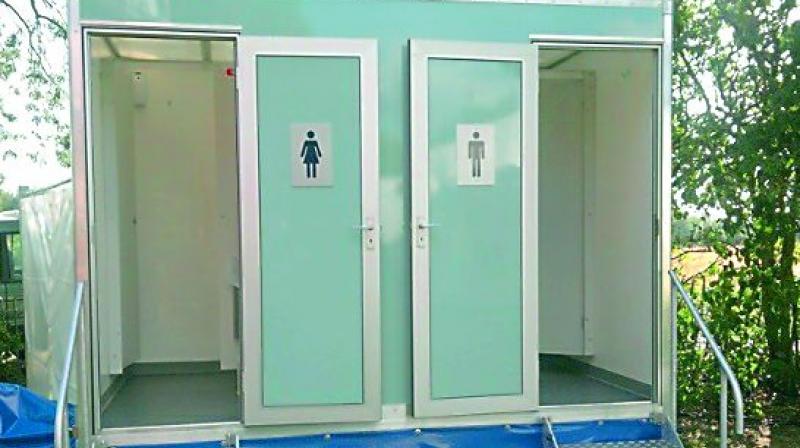Swachh Bharat was a dream of Mahatma Gandhi, Father of the Nation. To honor his dream, Prime Minister Modi initiated the Swachh Bharat Abhiyan, i.e to have Clean India by 2019 to celebrate the 150th birth anniversary of Mahatma Gandhi.
Recently in Prayagraj, Prime Minister Narendra Modi after offering prayers at Sangam was seen paying respect to the Safai Karamcharis. While acknowledging their efforts to keep the ground clean, he also indulged in an unexpected gesture, by cleaning the feet of the Safai Karamcharis, showing Aabhar. He also insisted that people call the garbage collector as ‘safaiwala’ instead of ‘kudewala’, as we are the ones who create that garbage and they collect it. Such small gestures have huge impacts on people and their behavior.
Having toilets close to home was never considered good in earlier times. There were many myths about the same which led to people not providing toilets near the domestic establishments. Later it became a part of their lifestyle that people were not even aware about the advancements in the hygiene and drainage facilities. The challenge with the new mission was to make people positive about sanitation hygiene and make them believe that open defecation is fundamentally wrong.
Changing one factor of people’s life can have a major impact on their lifestyles. The Clean India Mission may look like a cleanliness drive, but it is more than that. The mission aims at making the entire country Open Defecation Free, by providing sanitation facilities to every household.
The importance of sanitation and hygiene is well documented; they play an important role in maintaining health, and also affect the safety, security and dignity of women. A study by the World Bank says that about 40% of India’s children are physically and cognitively stunted, the major reason being lack of sanitation. The lack of sanitation, as estimated by the World Bank costs India over 6% of our gross domestic product (GDP). A study on economic impact of sanitation by UNICEF estimated that a family saves over Rs. 50,000 per year in an Open Defecation Free village.
To achieve the mission by 2019 many efforts were made. The problem was not only addressed, but also was worked upon. Major emphasis was given to those areas that had no defecation facilities and toilets were built. Another hindrance that the mission faced was the habit and willingness of people to defecate in open, which was to be changed.
The success of the Swachh Bharat Mission is directly proportional to the participation of the people. It depends on people, their willingness to change, maintaining personal hygiene, and building and using toilets. This is why behavioral change communication was an important component of the Hygiene Index survey. The survey found that most cities needed to work on creating behavioral change and this change could help the individual and the society. Public participation and public behavior are the foundation of any change in the country. Each and every stakeholder needs to understand and contribute in making others realize the value of cleanliness, hygiene and sanitation.
In Indore if you want to defecate in the open, an irritating sound of clanging metal is all you will hear. Under the unique initiative by Indore’s civic body ‘dibba gangs’- Roko or Toko, the members, mostly schoolchildren, whenever they come across anyone defecating in the open, spread the message by beating metal boxes loudly. They also have the power to impose a fine of Rs. 100 on anyone found defecating or urinating in the open. This initiative turned out to be successful as it involved members of community. This is the perfect example of how habits and mindsets can be changed at any age.
Swachh Bharat is one of the major centrally sponsored schemes of India. The mission receives funds through budgetary allocations, contributions and CSR (Corporate Social Responsibility).
As of now, 3461 cities and 5,52,452 villages have achieved the status of Open Defection Free. This makes 28 states, 604 districts of India Open Defection Free. The mission has started showing results, and soon we’ll have a country status of 100% Open Defecation Free, with clean and hygienic living environment. Along with the exemplary government initiatives, we should all pledge that we’ll contribute and devote time to make India Clean and also encourage other people to do the same.
